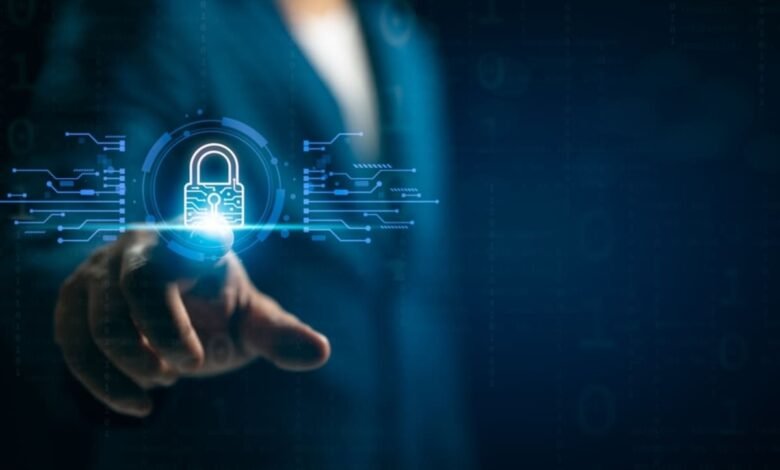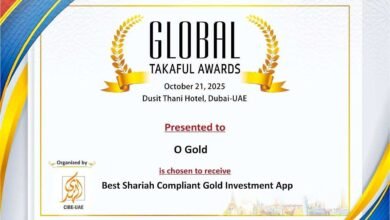Global Leaders Convene in Dubai to Tackle Tech, Economy, and Health

▼ Summary
– The Annual Meetings of the Global Future Councils and Cybersecurity 2025 opened in Dubai, running until October 16, 2025, and gathering over 700 experts from 93 countries.
– The event is led by UAE leadership with a vision to accelerate global dialogue, foster international cooperation, and shape future World Economic Forum agendas.
– The Global Future Councils, organized into 37 councils across six themes, forecast trends and design sustainable solutions for global challenges.
– A new feature, Output Labs, facilitates cross-council workshops to generate innovative insights on issues like economics and climate change for policymakers.
– The cybersecurity meeting focuses on international cooperation to address threats, secure infrastructure, and build resilience through expert discussions and partnerships.
A major international summit has officially commenced in Dubai, bringing together hundreds of the world’s leading specialists to confront the most pressing issues in technology, the global economy, and public health. This pivotal gathering, which continues through October 16, 2025, is centered on forging sustainable futures and improving the quality of life for communities worldwide.
The event, known as the Annual Meetings of the Global Future Councils and Cybersecurity 2025, is a collaborative initiative of the UAE Government and the World Economic Forum. It has drawn more than 700 experts from 93 different nations to address the trajectory of vital global sectors and the growing cybersecurity challenges that accompany swift technological progress.
Under the leadership of His Highness Sheikh Mohamed bin Zayed Al Nahyan, President of the UAE, and guided by the directives of His Highness Sheikh Mohammed bin Rashid Al Maktoum, Vice President and Prime Minister of the UAE and Ruler of Dubai, the meetings aim to speed up global dialogue. The objective is to strengthen international cooperation and enable countries to take an active part in determining the future agendas of the World Economic Forum.
The Global Future Councils form the core of this effort. This network consists of 37 specialized councils that concentrate on six primary areas: Technology, Economy, Society, Environment, Governance, and Health. Functioning as an interdisciplinary knowledge hub, these groups work to anticipate new trends, develop long-term strategies, and create sustainable solutions for worldwide problems. This year’s assembly introduced new councils and members from diverse backgrounds to broaden the scope and impact of their work.
A significant innovation for the 2025 meetings is the introduction of Output Labs. These are specialized workshops that bring together specialists from different councils to tackle urgent matters like the global economy, digital security, and climate change. The Labs are designed to produce creative insights and comprehensive understandings of complicated issues. These findings will be communicated to policymakers and leaders across the globe to support well-informed decision-making processes.
These collaborative sessions are anticipated to promote deeper cooperation across various fields, allowing the Councils to generate forward-thinking frameworks that more effectively handle interconnected global challenges.
Running alongside the Global Future Councils’ sessions, the Annual Meeting on Cybersecurity stands as a central component of the event. It gathers over 150 of the planet’s top cybersecurity professionals, in addition to more than 90 speakers representing governments, international bodies, businesses, civil society, and academic institutions.
In an era increasingly defined by the Intelligent Age, characterized by fast-paced digital transformation, artificial intelligence, and intricate connectivity, cyber threats and vulnerabilities have multiplied. The cybersecurity portion of the meetings offers a dedicated platform to advance international collaboration, exchange best practices, and develop unified strategies for protecting critical digital infrastructure on a global scale.
Discussions on cybersecurity are targeting urgent concerns such as securing essential infrastructure, countering new cyber threats, managing regulatory compliance, and strengthening societal resilience against cyber risks. Through keynote speeches, panel debates, and interactive workshops, experts are participating in knowledge sharing and capacity-building activities. These efforts are intended to assist both government and private sector organizations in reinforcing their cybersecurity systems.
Networking events provide cybersecurity leaders with chances to establish partnerships, investigate innovative technologies, and harmonize policy frameworks. The ultimate goal is to cultivate a more secure and resilient digital environment.
His Excellency Mohammad Abdullah Al Gergawi, UAE Minister of Cabinet Affairs and Co-Chair of the Global Future Councils, highlighted the UAE’s dedication to accelerating sustainable development across the world. He stressed the critical need to utilize expert knowledge networks like the Global Future Councils and to nurture a collective approach to shaping a future that benefits all communities.
(Source: Economy Middle East)





